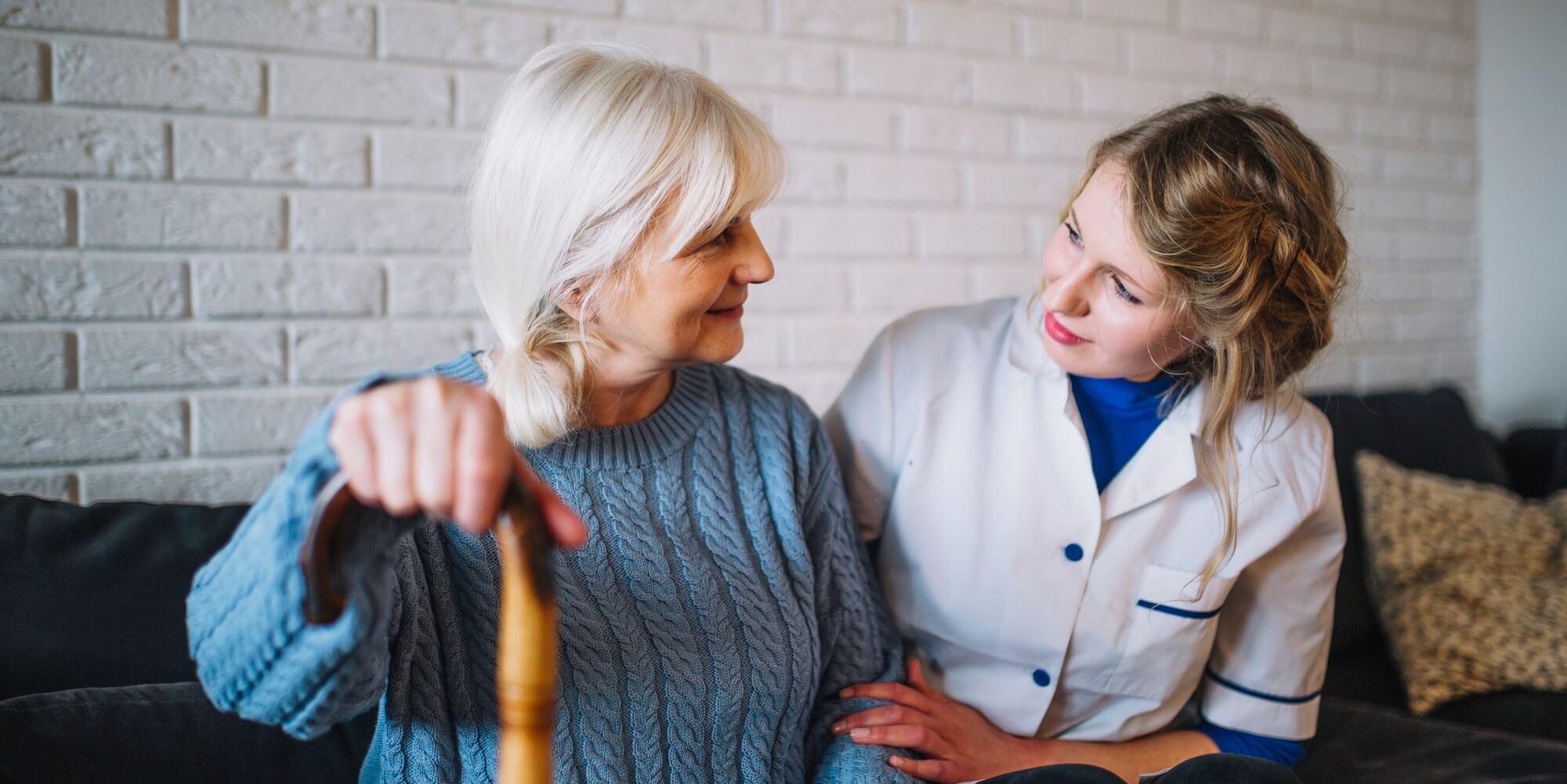Aging is an inevitable part of life that typically leads to changes in health and behavior. It’s important to take note of these transitions to ensure the quality of life of an older parent, grandparent, or family member doesn’t decline. If these changes affect their health or emotional well being, it may be time to consider options for additional care.
After nearly fifty years of providing quality senior care and serving our residents and their families in the spirit of Christian love, we are familiar with many early signs indicating your senior loved one might need some extra help. As you continue reading, please remember that everyone is unique and these changes aren’t universal. You know your loved one best and may notice changes that are not mentioned here.
Changes Around the House
One area you may notice changes is around your loved one’s home. Perhaps you stop in for a visit and see the usual household chores haven’t been done in a while or there are still leaves in the yard waiting to be picked up. Often, aging adults aren’t able to keep up with the normal household chores or seasonal yard work. They may start to spend more time in one area of the house, perhaps avoiding the garage or not venturing into the basement to do laundry. A lack of usual groceries in the fridge or cupboards could mean they are unable to make the usual shopping trip or prepare meals like they used to.
Changes in Health
A decline in your loved one’s health is usually the most obvious sign it’s time to seek additional care. You might notice they have more trouble managing medication—maybe refills are due too soon or not soon enough—or they are losing weight because they are forgetting to eat or prepare meals.
Some seniors start to have trouble navigating stairs or moving around the house. Fear of falling while stepping in and out of the tub could mean they can’t follow their usual routine or take as much care with their appearance. Unexplained bruises could indicate falls they haven’t told you about.
Signs of forgetfulness, not remembering to eat or take medication, can feel especially alarming since it can sometimes indicate early stages of dementia. In these cases, the best course of action is always to make an appointment with your loved one’s doctor to see what could be causing the forgetfulness or if it’s getting worse.
Changes in Emotional Well Being
Our social circles naturally get smaller as we age. Friends and neighbors move away, and it may not be as easy for some seniors to do their normal community activities like going to church or volunteering. Social and emotional withdrawal can happen especially after the death of a spouse or close friend. Signs that your loved one is more socially isolated or withdrawn could mean it’s time to stop by more often to check in or arrange regular activities outside of the house.
Get Answers to Your Senior Living Questions
How many changes do you notice before looking for some extra help? Look for a few, but don’t jump to conclusions. Maybe your loved one is recovering from a cold or is having a bad week and will get back to their normal routine soon.
You should also remember that a decline in physical or emotional well being doesn’t always mean moving to a senior community like Sunset. Sometimes, adding extra safety features around the house like grab bars near the shower or a medication organizer will be enough to help your loved one continue living safely in their own home. Hiring an in-home caregiver a few times a week can also help with day-to-day tasks like laundry, grocery shopping, and meal prep which can be a little harder for seniors to do alone.
If you think it may be time for senior living, Sunset is always here to answer your questions and offer support. Our Senior Living Guide is a great resource if you are wondering about the financial aspects of senior care.
You can also schedule a tour to see if one of our communities would be a good fit for your loved one. Contact us anytime at 616.457.2770 to speak with an Admissions Counselor who can help plan out the next step to help your loved one age safely and happily.
